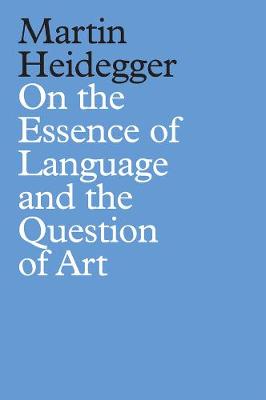The texts and notes collected in this volume offer unique insight into the development of Heidegger's thinking on language and art from the late 1930s to the early 1950s - a tumultuous period both for Heidegger personally and for Germany as a whole. Following Germany's defeat in WW II, Heidegger was banned from teaching at Freiberg University, where he had been a professor since 1929, and his thinking underwent significant changes as he began to cultivate different modes of silence and non-saying in his philosophy of language. This volume illuminates these shifts and charts the evolution of key terms in Heidegger's philosophy of language during this key period in the development of his thought.The central theme of Heidegger's reflections on language in this volume is his repeated engagement with the character of the word, silence and the unsaid, and his rejection of the instrumental conception of language, where he prioritized instead conversation as the 'homeland of language'. Alongside references to Hoelderlin and von Hofmannsthal and shrewd scrutiny of aural phenomena such as silent thought and speechlessness, speech is demonstrated to be intimately connected to human essence. In a later section, Heidegger examines the place of art, in particular the plastic arts, and the role of the artist in conjunction with the new industrial landscape and architecture of his time, and in juxtaposition with ancient Greek attitudes to space and the polis.
This key work by Heidegger, now available in English for the first time, will be of great interest to students and scholars of philosophy and to anyone interested in Heidegger's thought.
- ISBN10 1509535985
- ISBN13 9781509535989
- Publish Date 14 July 2022 (first published 1 July 2021)
- Publish Status Forthcoming
- Publish Country GB
- Imprint Polity Press
- Format Hardcover
- Pages 200
- Language English
